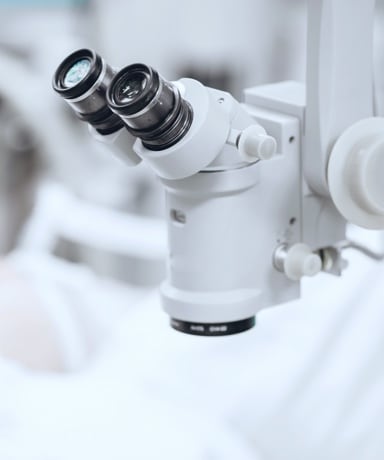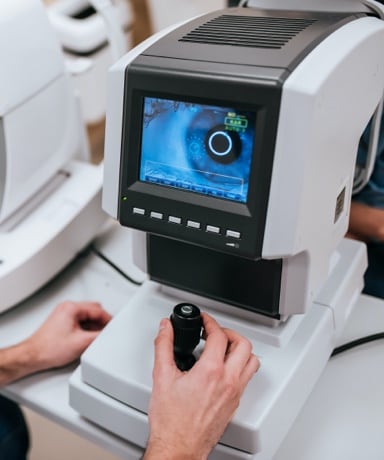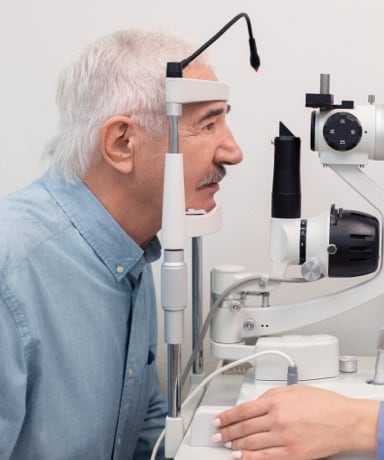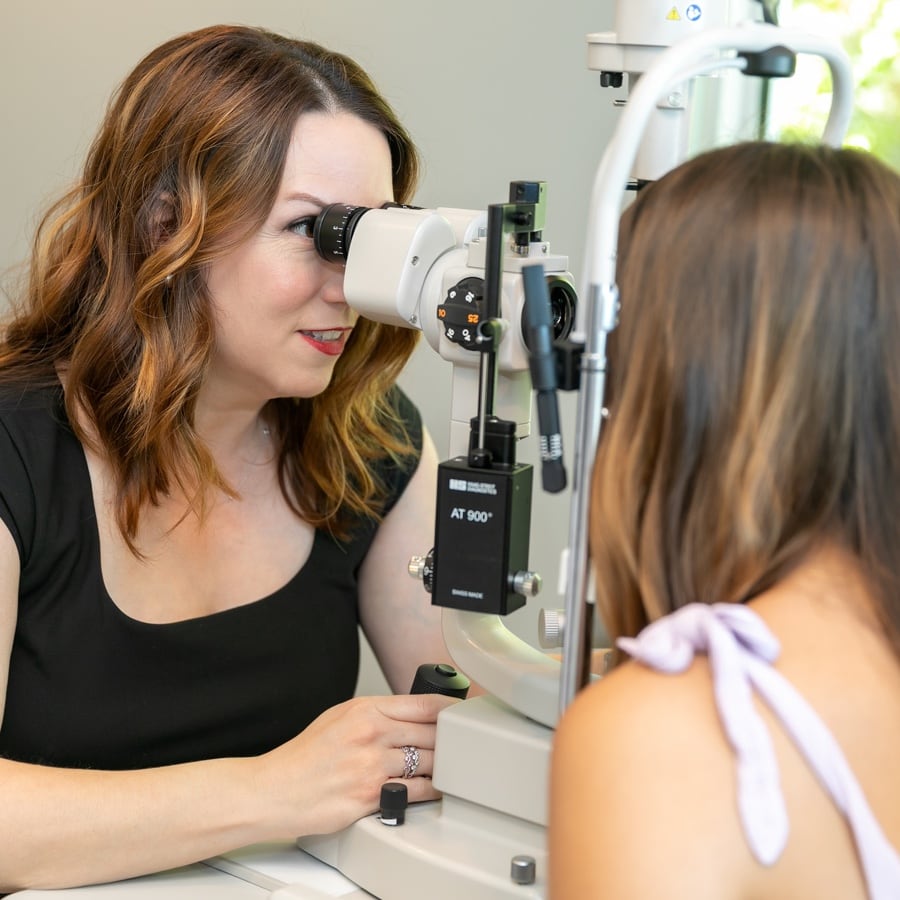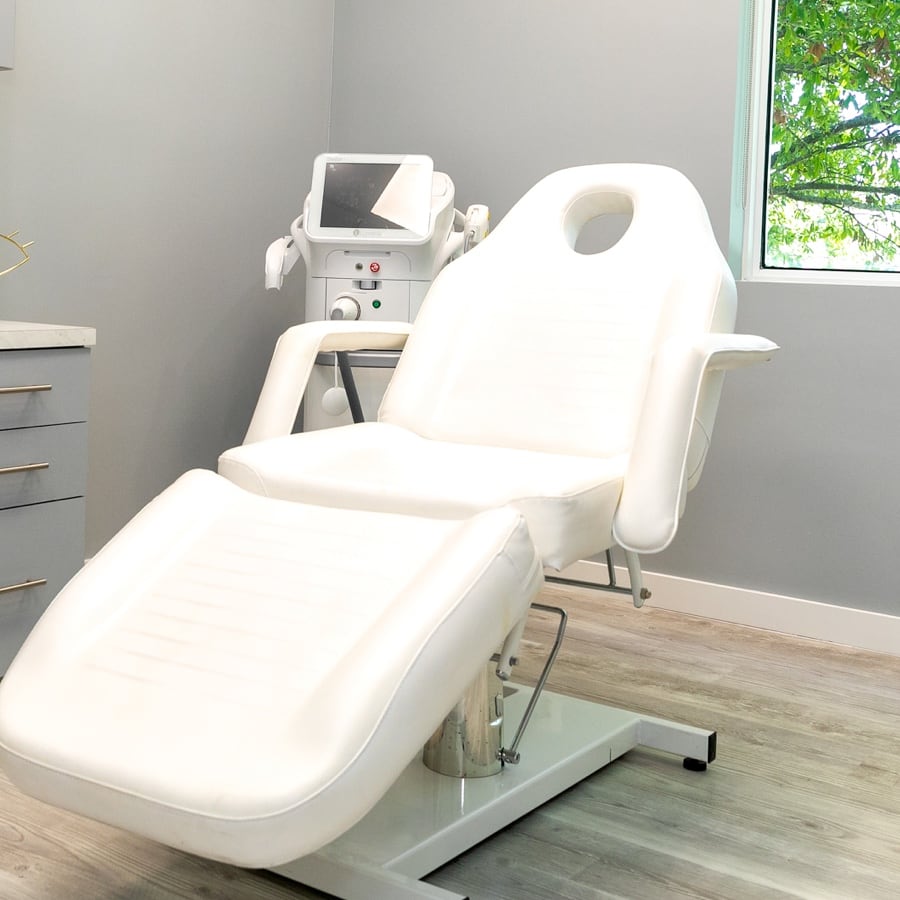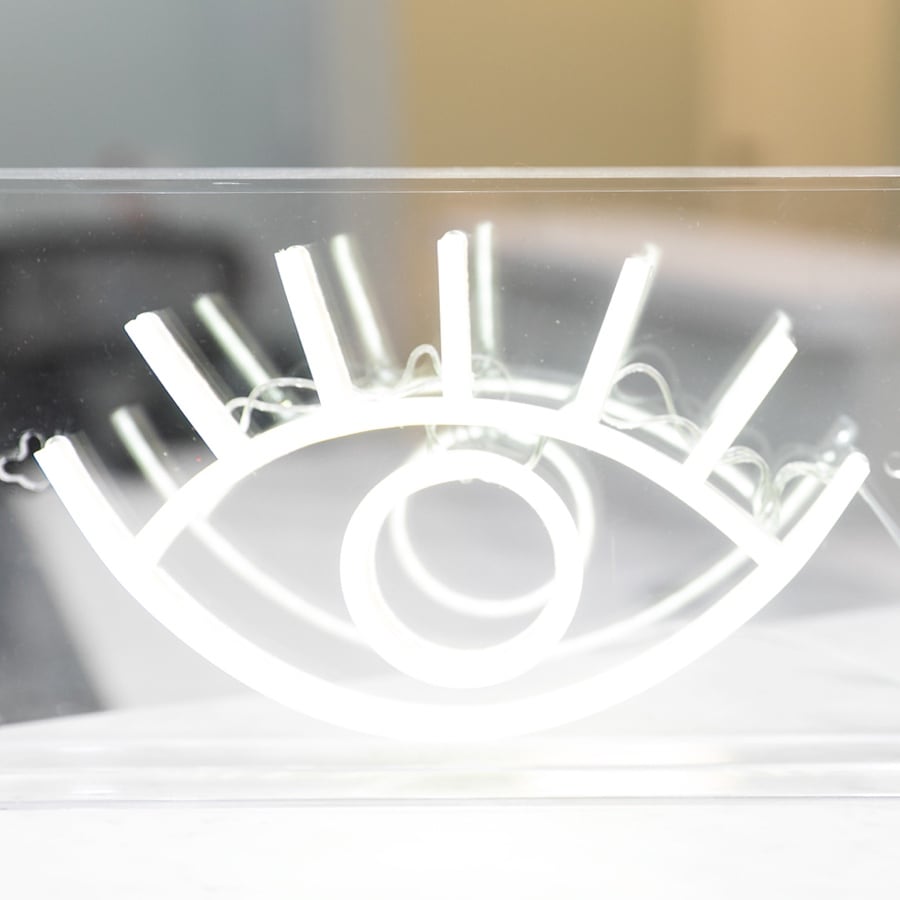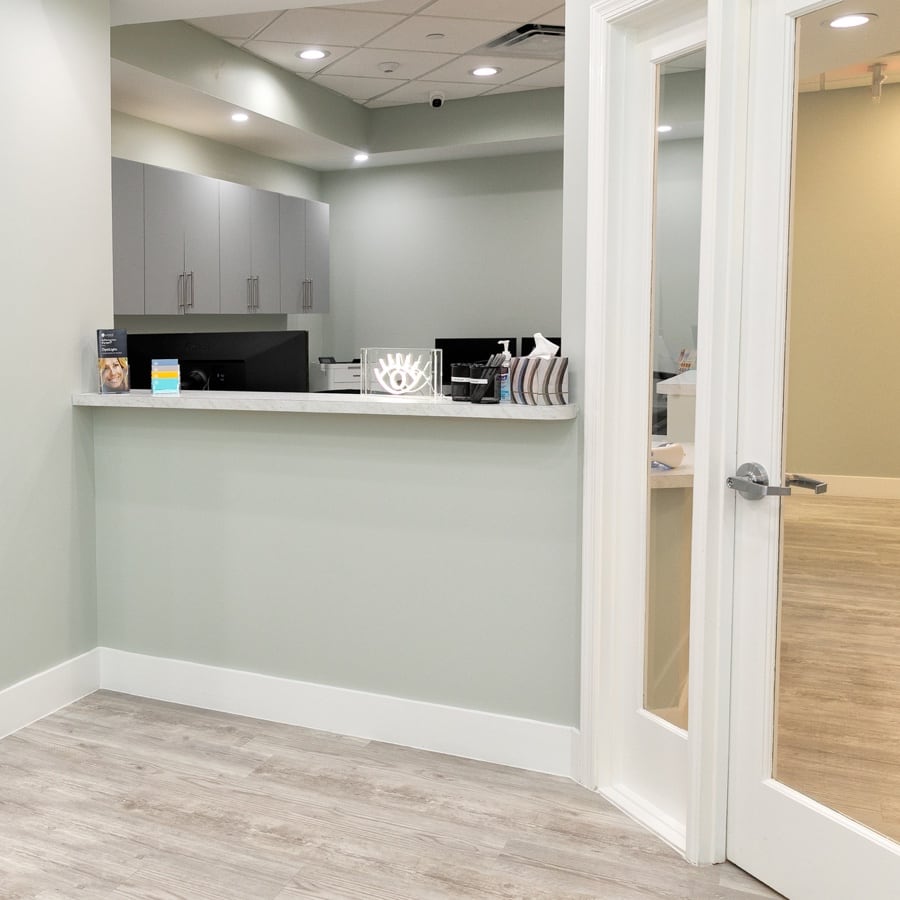
Pterygium Care at Gardens Eye Institute
Our team treats and manages a variety of conditions that can affect your eyes and skin. A pterygium, or surfers eye, is one of these conditions and is a non-cancerous growth that forms on the surface of the eye, potentially affecting your vision.
If a pterygium begins interfering with your vision, we offer surgery as an option to remove it. We want to help you maintain your clear vision.

What Is a Pterygium?
A pterygium is a non-cancerous growth on the surface of the eye. Sometimes called surfer’s eye, pterygiums occur as a result of sun exposure. Pterygiums over time, can grow to cover the cornea or the clear part of your eye. This can cause permanent scarring and blurry vision.
Pterygiums do not need treatment if they are not causing any symptoms. If a pterygium is interfering with vision, causing blurry vision, increased astigmatism, or approaching the center of the cornea, it should be removed.
If a pterygium interferes with your vision, we may recommend surgery to remove it. Removing a pterygium involves removing the tissue overgrowth and replacing it with a graft.
The graft may be a conjunctival autograph, which is tissue transferred from another part of one of your eyes. The graft can also be a donor graft or amniotic membrane.
At Gardens Eye Institute, we offer suture-less pterygium surgery, which reduces the chance of the pterygium recurring and decreases recovery time.
Before & After Pterygium Surgery
We can treat the discomfort from pterygium with lubricating or steroid eye drops, but if your vision is impaired, surgery may be required for removal. Our team offers sutureless pterygium surgery, reducing the chance of recurring pterygium and decreasing recovery time.
Pterygium Surgery
Pterygium surgery involves removing the tissue overgrowth and replacing it with a graft.
The graft we use may be a conjunctival autograft, which is tissue from another part of one of your eyes. The graft can also be a donor graft or an amniotic membrane.
After Surgery
Following surgery, once the pterygium is removed, we may transplant a thin piece of normal tissue onto the affected area. This process can help reduce the chance of regrowth.
Protecting your eyes from direct sunlight, dryness, and dust are good preventive measures following surgery.

Keeping Your Eyes Healthy
Our team uses a combination of innovative technologies and cutting-edge therapies to help ensure that your eyes stay healthy. A pterygium can cause discomfort and affect your vision, and we want to help you keep your vision and eyes healthy.

Our Location
Our Address
- 11641 Kew Gardens Ave, Suite 209 (2nd flr)
- Palm Beach Gardens, FL 33410
You can find stairs and elevators in between buildings 11631 and 11641.
Come See Us
We are conveniently located close to I-95, just off PGA Boulevard across from the Gardens Mall. You can find us on the 2nd floor of the Professional Centre—our team is looking forward to welcoming you!
Parking & Public Transit
Our office features plenty of parking just outside and is accessible via public transportation.
Reach us by public transportation:
Contact Information
- Phone: 561-331-3833
- Fax: 561-331-3893
- Email: [email protected]
Our Hours
- Monday: 8:30 AM – 5:00 PM
- Tuesday: 8:30 AM – 5:00 PM
- Wednesday: 8:30 AM – 5:00 PM
- Thursday: 8:30 AM – 5:00 PM
- Friday: 8:30 AM – 12:15 PM
- Saturday: Closed
- Sunday: Closed


